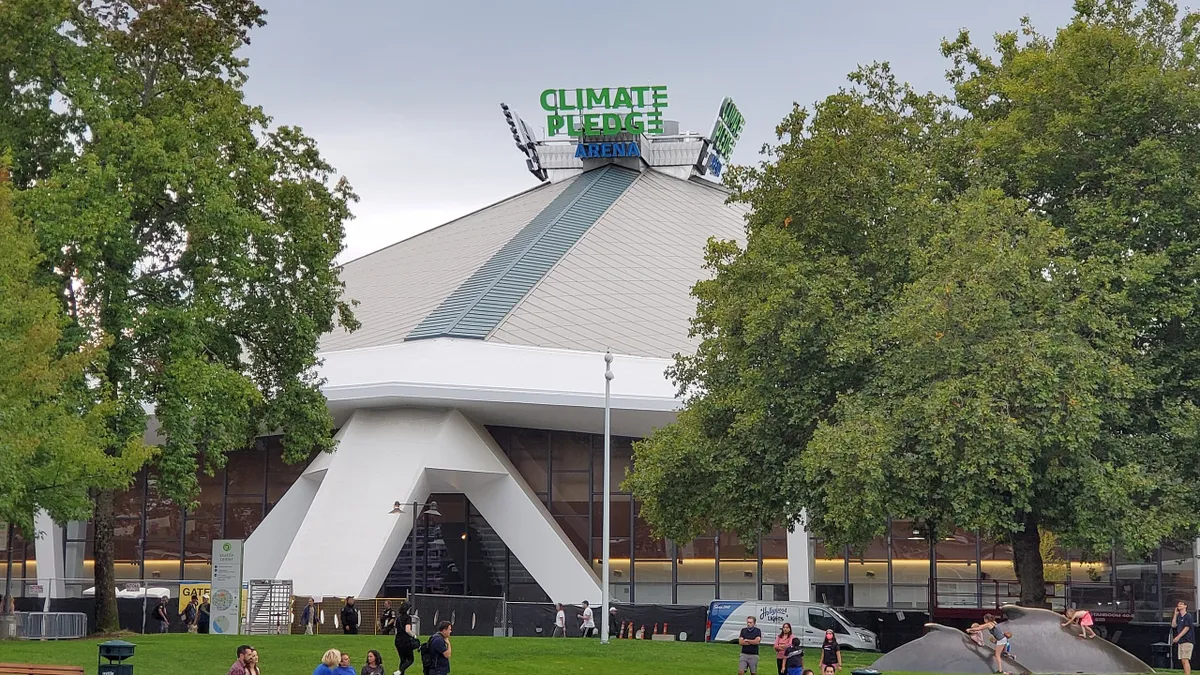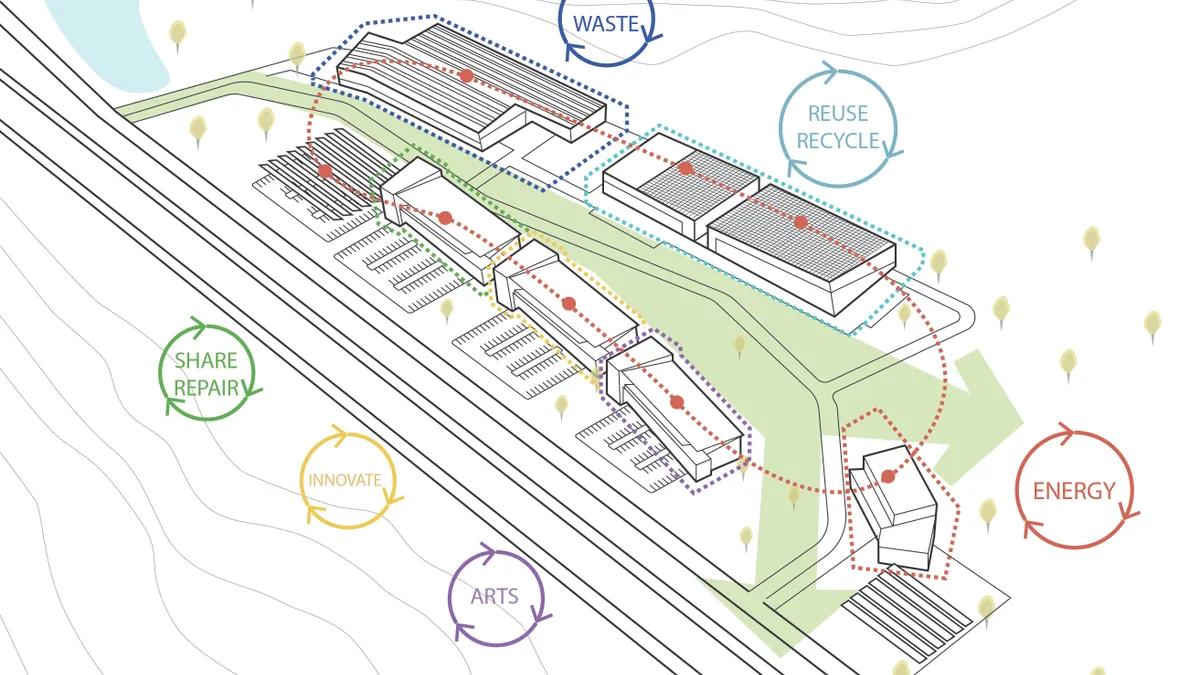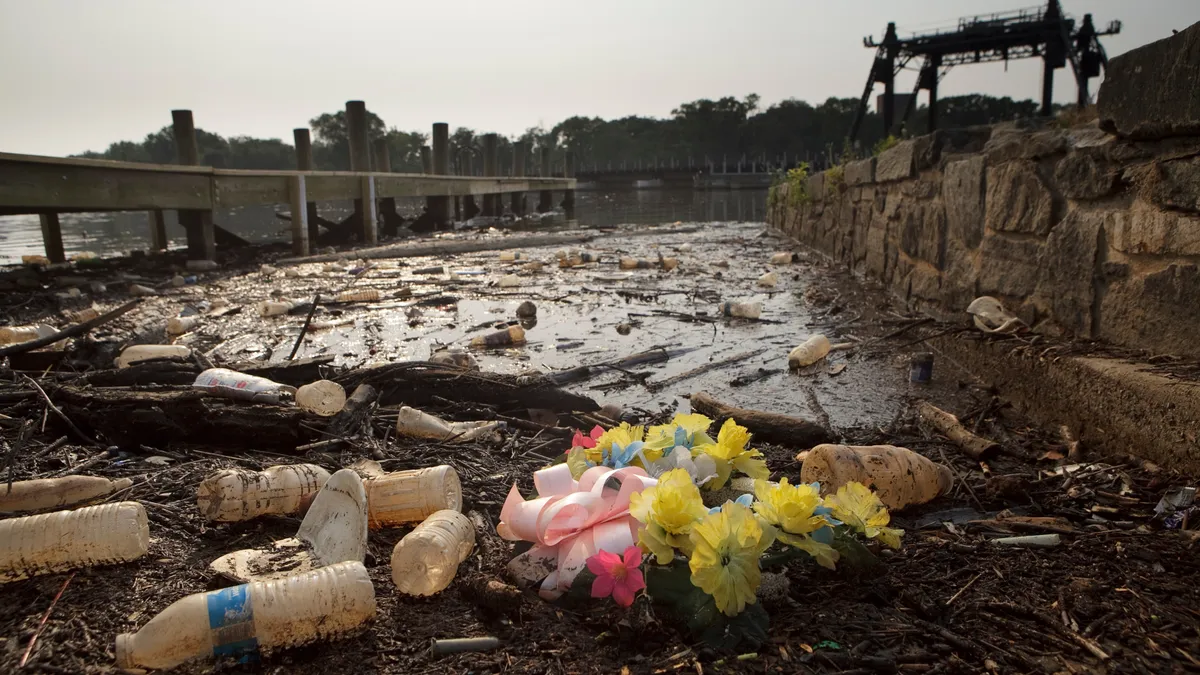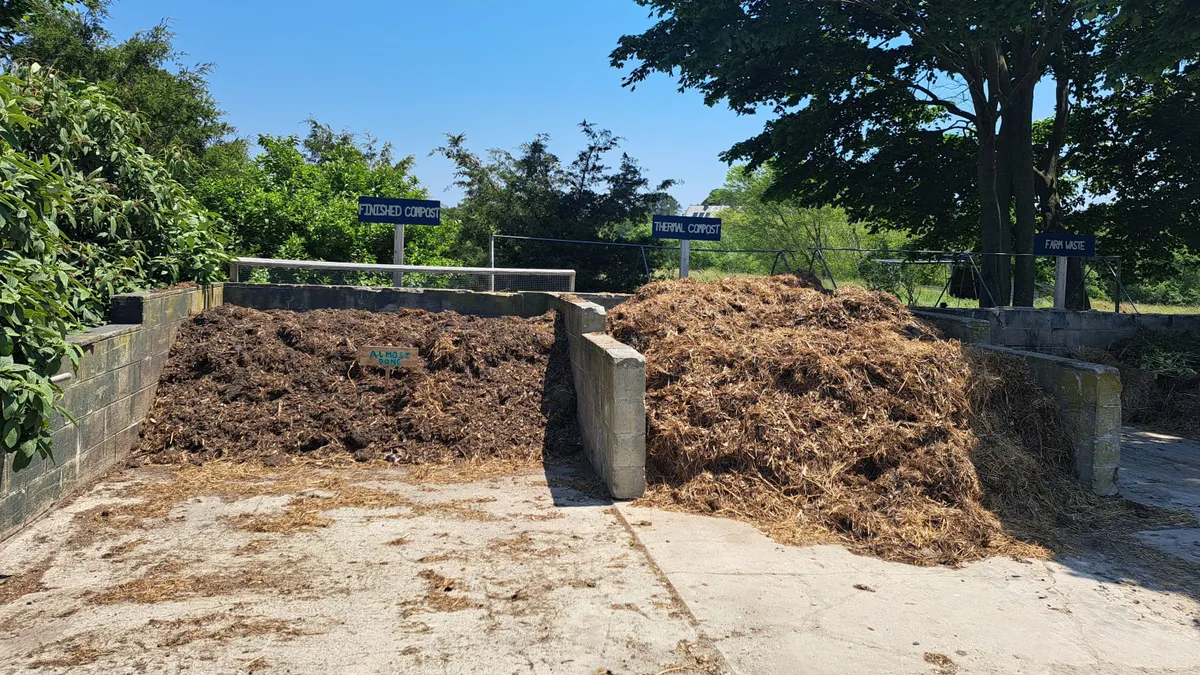Zero waste systems rely on participants to close the loop on their materials, but that can be challenging in situations where reusable containers aren’t returned. In spaces where people congregate, though, proponents are strategizing ways to make reusable container systems work.
Those venues range from schools to restaurants to professional sports stadiums. A diverse array of nonprofits, companies and consultants is springing up to create reusable solutions. Speakers at the National Zero Waste Conference on Oct. 2 shared their experiences identifying solutions for reusable systems at all kinds of venues.
As founder and president of Greenluxe, Amy Wald identifies ways for members of the hospitality industry to incorporate more reusable systems. She said travelers today increasingly expect businesses to have sustainable practices, creating an opportunity for companies to prove their bona fides.
“This is really more than an industry problem. In my opinion, this is a behavior change problem,” Wald said. “That's why I believe the tourism and hospitality industry are so uniquely positioned to help solve some of these incredible challenges of our time.”
Other spaces also have the power to change behavior. The Post-Landfill Action Network runs the Atlas Zero Waste fellowship that trains college students to develop zero waste and reuse plans for their campuses, overcoming bureaucratic silos in the process.
Alex Fried, director of Atlas Zero Waste, said that campus reusable systems historically have been challenging to operate due to containers leaking out of a closed loop system. But today, Reuzzi, Topanga.io, Usefull and other startups have set up digital systems that encourage students to return containers. He said some campuses have gone from a 30% to 97% return rate.
“That opens the door for full system circularity,” Fried said.
Others shared their own findings for large venues and revealed where they’re seeing progress in the closed loop space.
Schools
It’s not just college campuses that have an opportunity to adopt reusables; K-12 schools also can teach children how to responsibly engage in such systems. Clean Water Fund’s ReThink Disposable program has found that getting involved when a school is built or renovated often makes the biggest impact, as transitioning a large food service system to reusables requires dishwashing, said Amber Schmidt, the organization’s New England zero waste organizer.
“I cannot tell you how frustrating it is to hear that brand new schools are being built that do not have dishwashers in those plans,” she said.
ReThink Disposable also encourages schools to buy 1.5 times the number of dishes they'll need to serve all their meals to bake in a measure of redundancy and avoid reverting back to disposables. Already, the organization is seeing results. In one case study, ReThink Disposable found that a 10-school district in Connecticut could prevent the use of more than 3.5 million pieces of disposable items and save $100,000 annually by switching to reusables.
Reusable systems should also look different than disposable systems at the point where students hand off their items, such as by incorporating liquid pour buckets, utensil bins and other receptacles. Otherwise, Schmidt said, students will continue to treat their reusable items as disposable.
“When the system looks the same, it's going to be treated the same,” Schmidt said. "The behavior change that we need to see from students is we need them to see the difference of where these items are going, so that they can make better decisions — one, at school, but also they bring that home with them."
Restaurants
Julie Wedge, program director of ReThink Disposable, said small businesses can make a big impact by switching to reusables, often for a price that can be recouped in less than a year. Her program partnered with funders that included the National Oceanic and Atmospheric Administration and The Ocean Fund to help five Oakland restaurants transition their dine-in materials to reusables.
The restaurants each received up to $500 to fund the purchase of reusable service ware, and they now avoid an average of 3,240 pounds of single-use disposable waste annually, the fund announced last week.
ReThink Disposable has helped more than 600 restaurants move toward using reusable items. Its partners see a return on investment within four months, on average, Wedge said. Those restaurants typically save between $3,000 and $22,000 in net cost savings each year, including for labor and water.
“Even in a small restaurant, there's a lot of impact in converting your dine-in” materials, Wedge said.
Hotels
There is plenty of opportunity for waste reduction in the hospitality industry — an average 200-room hotel goes through about 300,000 single-use plastic items in a month, Greenluxe’s Wald said. Changing that paradigm could result not just in savings for the hotel operator, but it could help shift behaviors among customers, she believes.
Wald said hotels’ food and beverage programs are often a good place to start incorporating reuse, as employees there see the most waste, both organic and inorganic. Hotels can also transition other amenities, such as toiletries, to further reduce waste. Doing so can result in both waste hauling and procurement cost reductions, Wald said.
Z3 Data Services, founded in 2023, has also jumped into the space to help hotels and other clients track their waste. The company collects and synthesizes hauler data for clients to provide reports on waste generation and materials management. Z3 recently conducted a pilot with four hotels in Austin, Texas, and found that the hotels were eager to identify areas for improvement.
“The hotels all wanted to see the other hotels' data,” said Rick Penner, co-founder of Z3. “They were all very keen to see how they were doing relative to the numbers.”
Stadiums
Sports venues around the country are beginning to identify the opportunity to capture cups and other items within their venues. New resources like the Play to Zero Playbook released by the Green Sports Alliance are helping stadium management share best practices, with support from WM, r.World, Keurig Dr Pepper and others.
Seattle’s Climate Pledge Arena, home to professional hockey and women’s basketball teams, is one such venue operating on the cutting edge. The arena phased out single-use plastic for consumer purchases in October 2023, said Brianna Treat, director of sustainability for the arena and the Seattle Kraken. The arena composts food scraps and materials like tray liners, utensils and popcorn bags, and it recycles much of the rest. Its average waste diversion rate was 93% over the last 26 months, Treat said.
Now, arena management is looking into a reusable cups system. The Kraken is partnering with Starbucks to trial reusables at its training facility, which sees about 600 patrons a day. Staff plan to learn from the data in that pilot to inform a similar system at Climate Pledge Arena.
“For a sports team, we all want to win,” Treat said. “We're really competitive. But the spirit that we follow is, although we love to win, we've all got to work together to get to the end goal, which is really helping to mitigate that climate crisis.”
Bold Reuse has also partnered with teams like the Arizona Diamondbacks to implement a reuse system for cups, starting with a specific section within their home stadium, Chase Field. The company put signage around the stadium’s “Bar-S All-You-Can-Eat Seats” to drive home the message that cups should be returned for reuse, which helped customers get the message, said Heather Watkins, co-founder and chief revenue officer of Bold Reuse.
“I think this really took it up a notch,” Watkins said. “When you do a surround-sound message for people, they'll really get it and do the right thing.”























